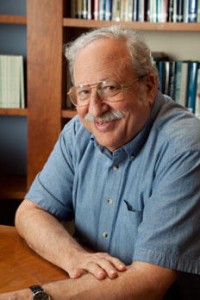*FOR IMMEDIATE RELEASE – OCTOBER 21, 2011*
occupybostonmedia@gmail.com | Dewey Square | 617.286.6805
FEDERAL RESERVE AGREES TO SAVE BANK OF AMERICA’S WEALTHY MANAGERS AT TAXPAYERS’ EXPENSE. AGAIN.
Occupy Boston learned this week that Bank of America’s holding company (BAC) has moved troubled derivatives from its subsidiary, Merrill Lynch, to Bank of America, which is insured by the FDIC and, ultimately, the US Treasury. Bloomberg News reports that BAC moved the troubled derivatives after having its credit rating downgraded last month. This downgrade was due to its relentless acquisition of failing companies like Countrywide Financial and Merrill Lynch, both of which have massive, hidden losses that will now to be borne by the 99%.
This means that Bank of America’s exposure to the ongoing European debt crisis is now insured by US taxpayers. This direct transfer of risk was completed without approval by regulators and, needless to say, without public input. It was done over the opposition of the FDIC, which objected because it put the insurance fund at risk. It was done with the support of the Federal Reserve, which, now more than ever, clearly represents the interests of the 1%. Bloomberg also reported that other investment banks’ derivatives positions have been placed in insured banks so that taxpayers will bear the risk of those losses as well. Collectively, the insured banks’ derivatives exposure is well over $100 trillion—far larger than the world’s GDP.
US taxpayers are now on the hook for trillions in bad deals made by Bank of America and JP Morgan when the next Systemically Dangerous Institution (SDI)—a term that refers to the supposedly “too big to fail” banks—fails again. A mere three years after taxpayers rescued US banks, the anti-regulators that lead our regulatory agencies are still unable or unwilling to protect the American people from insuring risks generated by investment-banking operations. Bank of America, which got a $45 billion bailout during the financial crisis, had $1.04 trillion in deposits as of midyear, ranking it second among US firms.
When reached by phone, former regulator William Black emphasized that this is precisely the sort of behavior that was prohibited by the Glass-Steagall Act before many of its provisions were repealed in 1999, and that were encouraged by the Commodities Futures Modernization Act of 2000.
“In Ben Bernake we have a quiet, professorial type who nevertheless remains reflexively opposed to any effective regulation, investigation, or prosecution of the fraudulent SDIs that drove this crisis,” Black said. “The Fed serves the 1%. The fact that he, a strong Republican, was reappointed by a Democratic president after a track record of abject failure as the nation’s leading anti-regulator says everything about just how successful international finance has been in capturing our democratic institutions.”
Occupy Boston supports transparency in banking. Those who join us might echo Black’s call for the Federal Reserve to release the name of the individual who approved this action and the exact composition of the assets and liabilities that were transferred. They might further sign this petition calling for the reinstatement of the Glass–Steagall Act and join in the upcoming Bank Transfer Day on November 5.
We are the 99%, and we are no longer silent.
###
Occupy Boston is the beginning of an ongoing discussion about reforming Wall Street and removing special interests from government. Its continuing occupation of Dewey Square—outside South Station in the heart of Boston’s Financial District—is just one of more than 120 separate Occupy encampments in cities across the nation and a symbol for “occupiers” everywhere who support real and lasting change.




